Bench Press
What is a bench press?
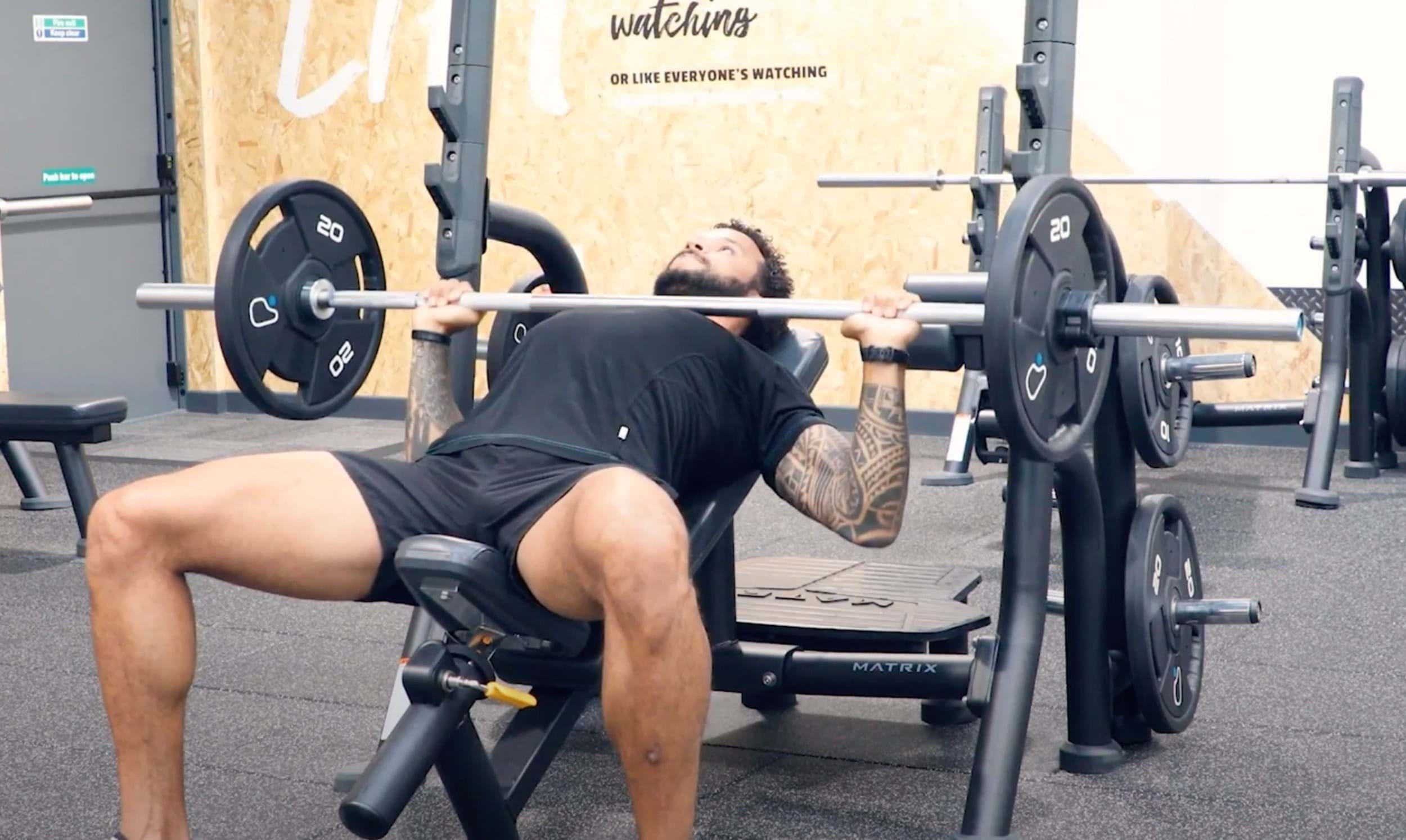
The bench press is one of the most effective exercises for building muscle and strength in your upper body. While the bench press predominantly targets the chest, it is a compound exercise which also works your shoulders, triceps, and core. Knowing how to correctly perform the bench press is key to ensuring the right muscles are targeted, as well as preventing injuries.
Different variations of the bench press utilise these muscles in different ways. Check out our step by step guides to the bench press variations below. Never done a bench press before? Starting off with the dumbbell bench press is a safe and effective way to build the chest muscles and work your way up to a barbell bench press.
Check out our other chest exercises: Chest dips, Chest flyes, Push ups
COMMONLY ASKED QUESTIONS ABOUT THE BENCH PRESS
There are many factors that can influence how much a person can bench press, from physical fitness, to height, to what you have eaten that day.
Comparing yourself to others is not a useful indicator of strength and worth. Instead, start off at a weight that is challenging but still allows you to keep good form, and increase either the reps or weight each week. This will allow you to build strength and muscle.
Although the bench press is predominantly a chest exercise, it does work the the arms and shoulders, making it a great compound move to help grow your arms as part of a balanced workout plan.
The best way to build bigger arms is to work these muscles 2-3x a week through both compound and isolate exercises, and increasing the weights or reps each week to continually challenge the muscles.
If building a bigger chest is your goal, you'll need to work this muscle group 2-3x a week with a combination of compound and isolation exercises, ensuring you continually increase either the weights or reps each week.
The bench press is one of the best compound moves to include when it comes to building your chest!
You'll also need to ensure you are eating enough protein, and may need to consider eating in a caloric surplus.
The best way to increase your bench press is to focus on adding either weight or the number of reps you reach each week, while keeping a good form.
For example, if your workout programme calls for 3 sets of 8-12 reps, you would increase the number of reps each week until you can do 12 reps. The next week, you can add enough weight that you can do 8 reps, and from there add reps on each week.
You'll also need to build strength in your chest through bench press variations, chest flys, and dips, work any supporting muscles such as the triceps through isolation work, and strengthen your core.
Bench press tips
- Maintaining a slight arch in your back helps to protect the back and shoulders and keep your spine neutral.
- The bar should be lowered slowly (around 3 seconds) but pushed up explosively (around 1 second).
- As you push the barbell up, drive your feet into the floor and brace your core. This increases stability so that the chest, triceps, and shoulders power the movement.
Bench Press Variations
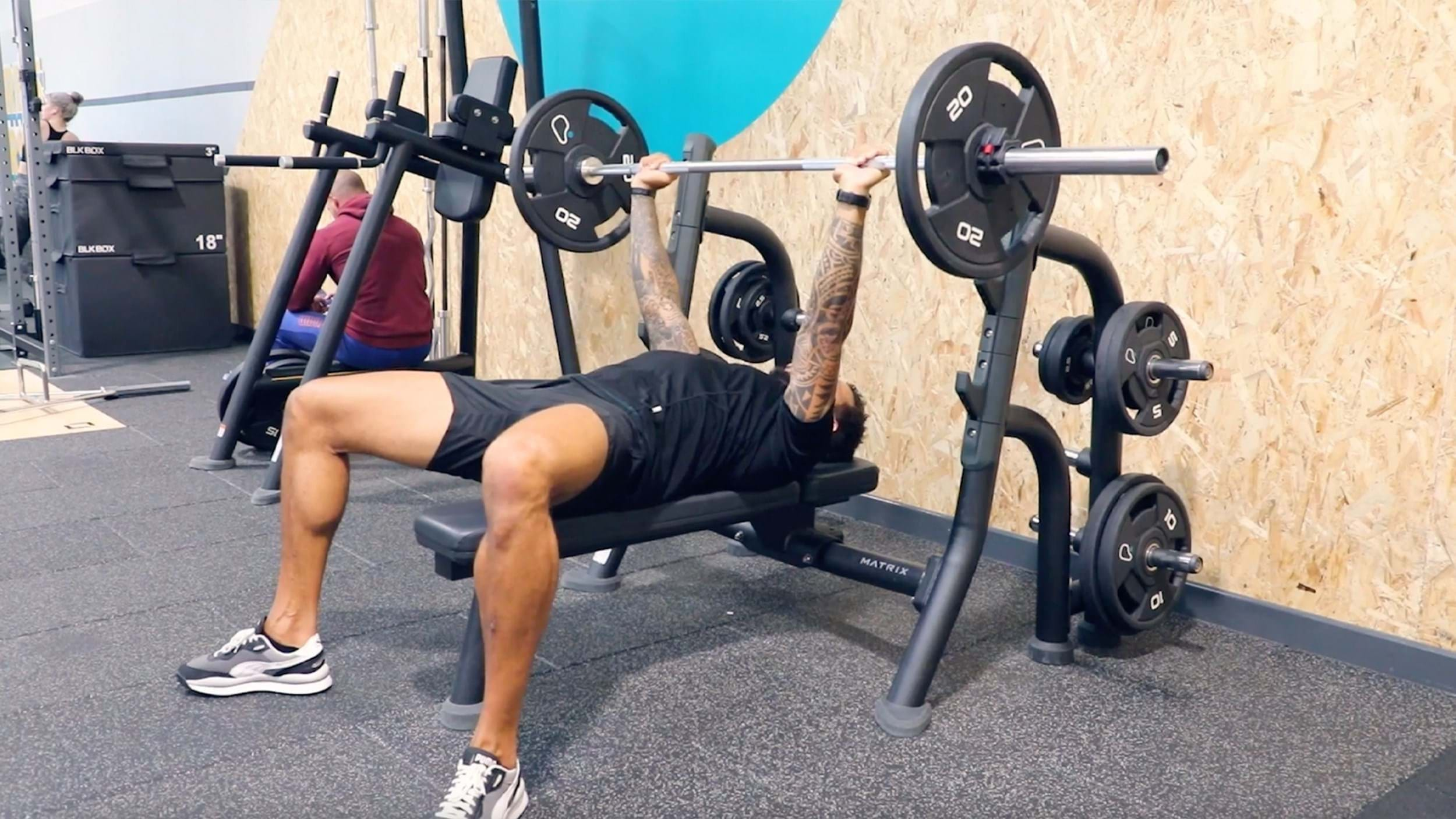
The barbell bench press is one of the most popular variations for strength and hypertrophy.
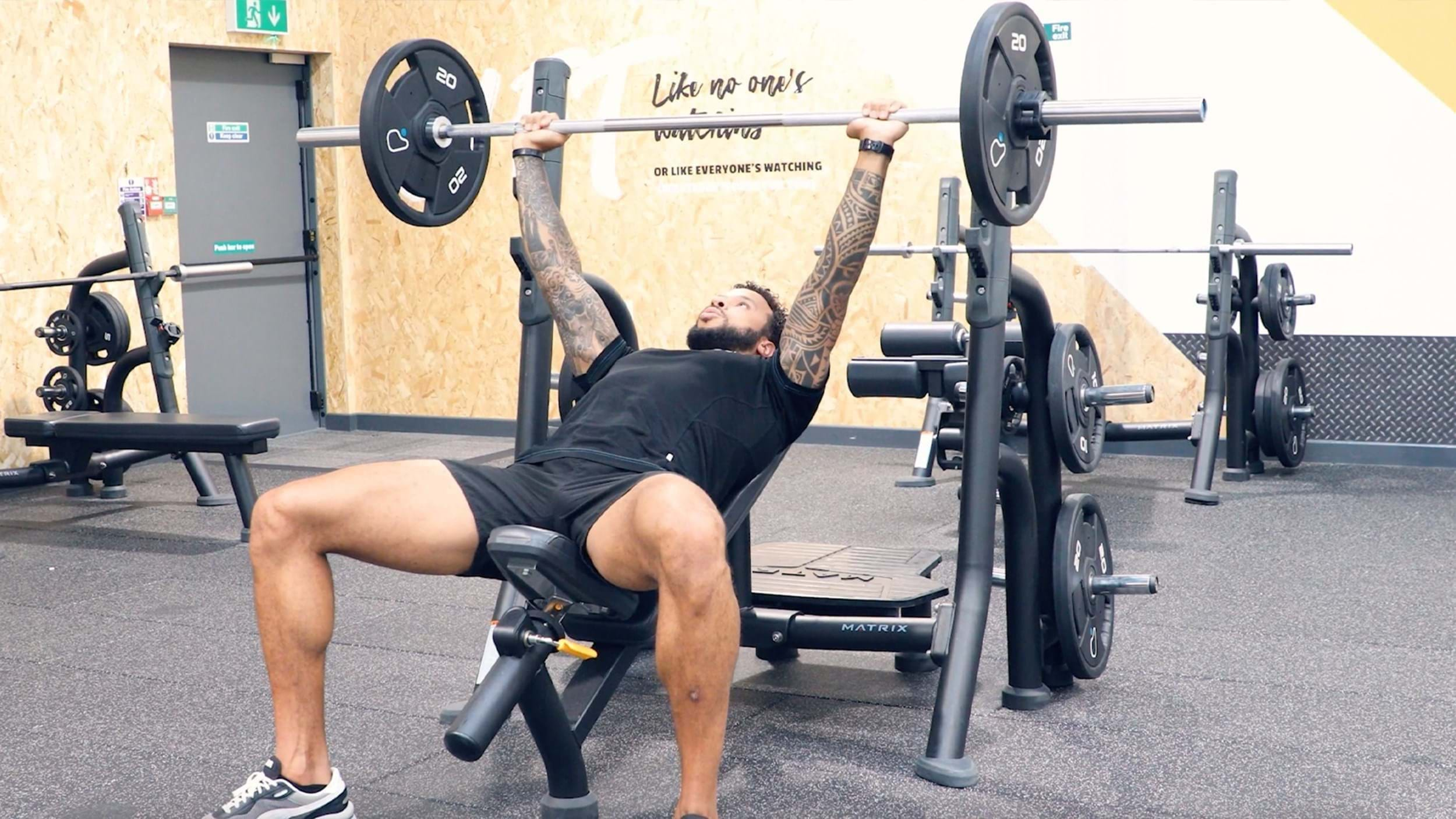
The incline bench press puts a greater focus on the shoulders and upper chest.
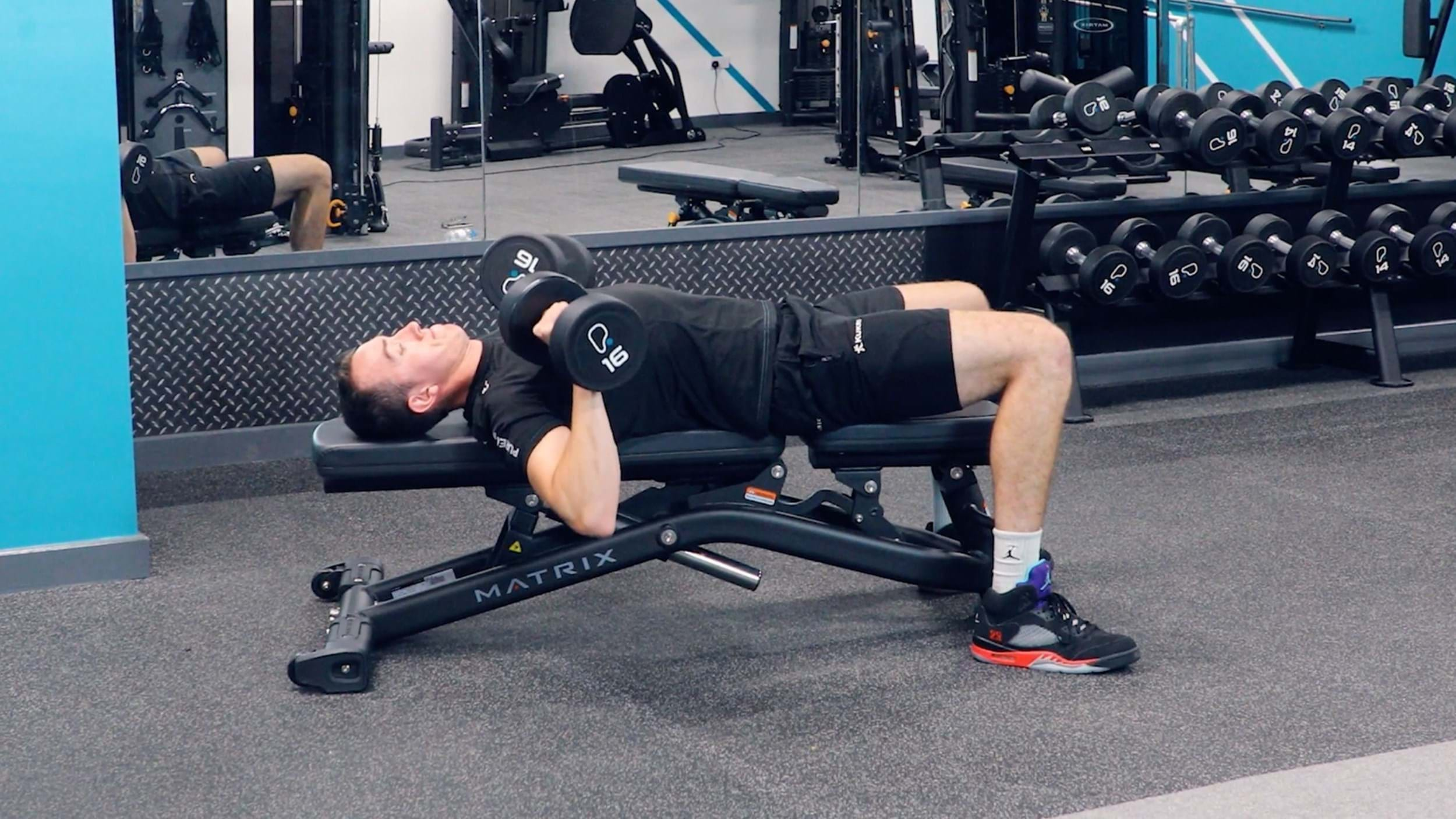
The dumbbell bench press is useful for beginners wanting to learn the lift, and intermediate and advanced lifters who want to build single arm strength and stability.
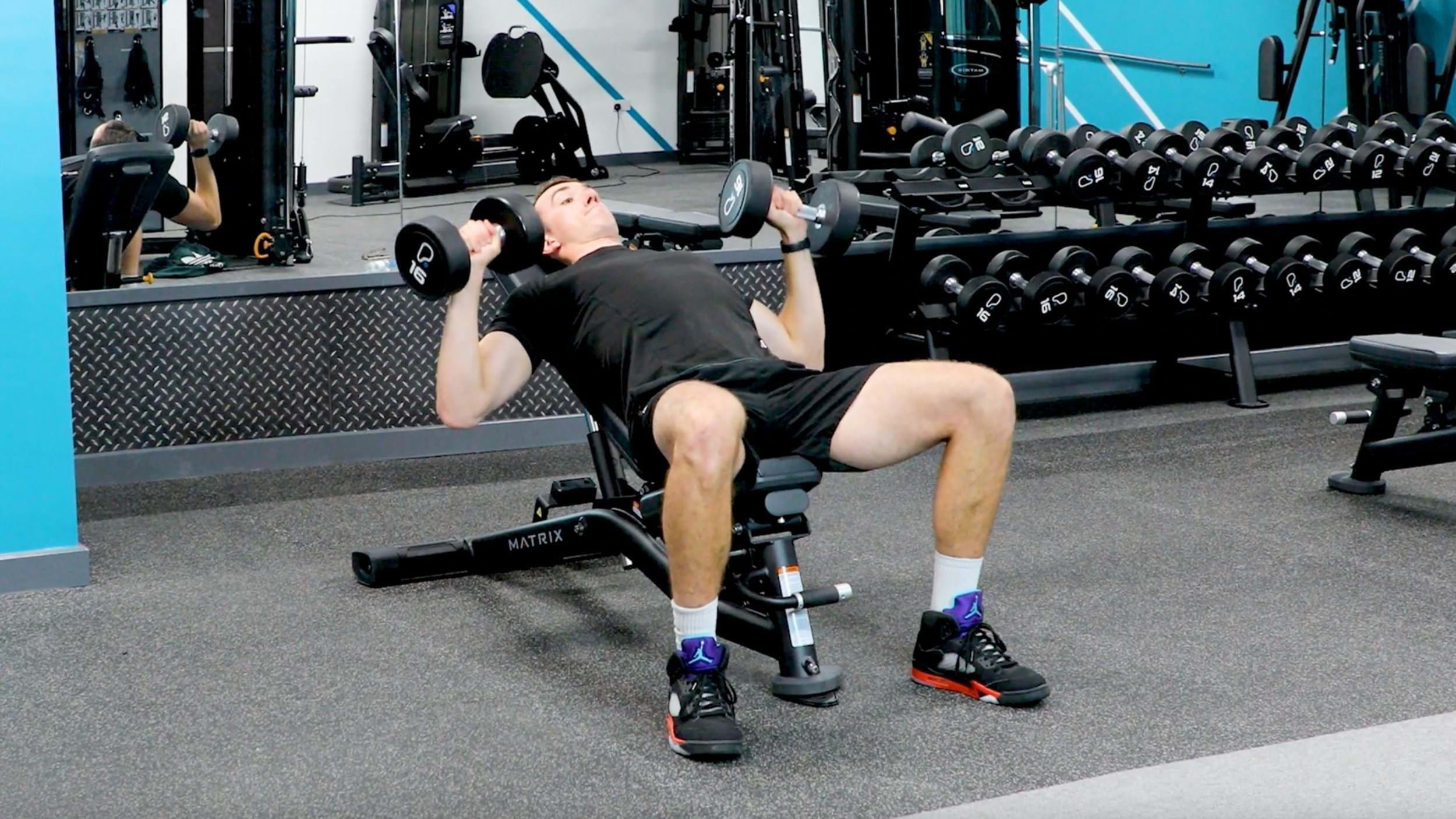
The incline dumbbell press helps to build strength and stability in the chest, with more work from the upper chest and shoulders.
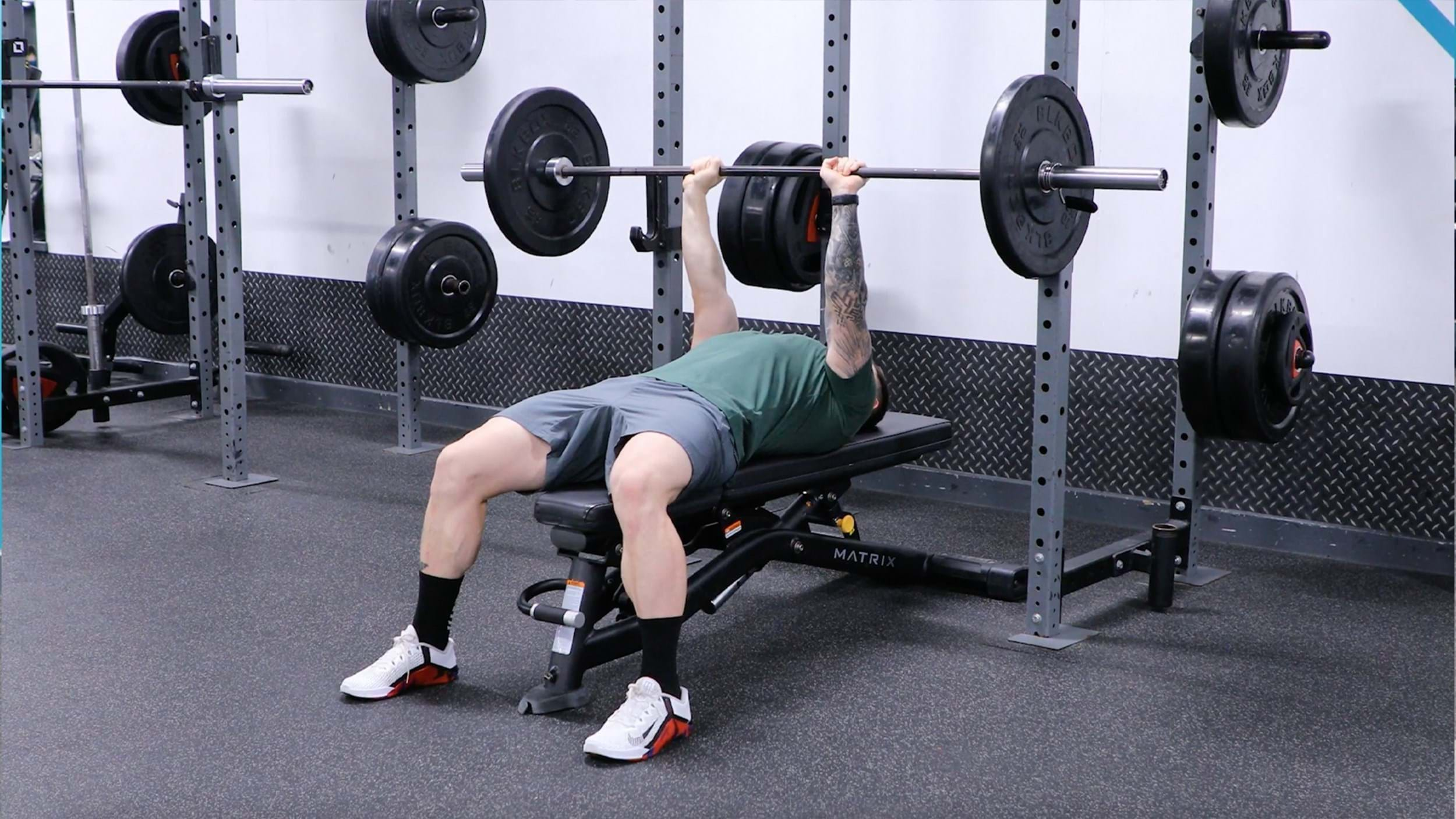
The close grip bench press puts more emphasis on the shoulders and triceps than other bench press variations.
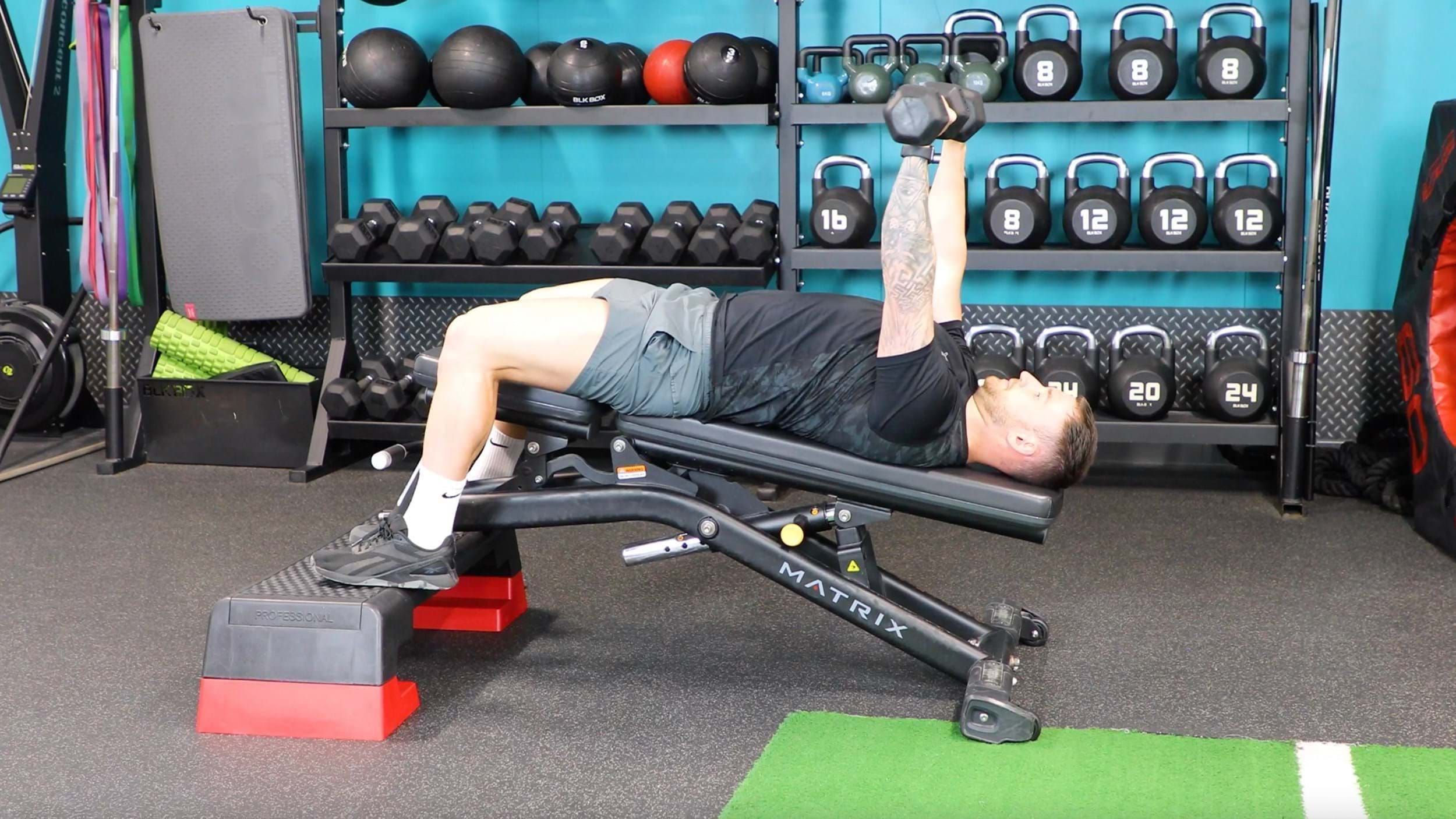
The decline dumbbell bench press puts a greater focus on the lower pecs, with less work coming from the upper chest and shoulders.
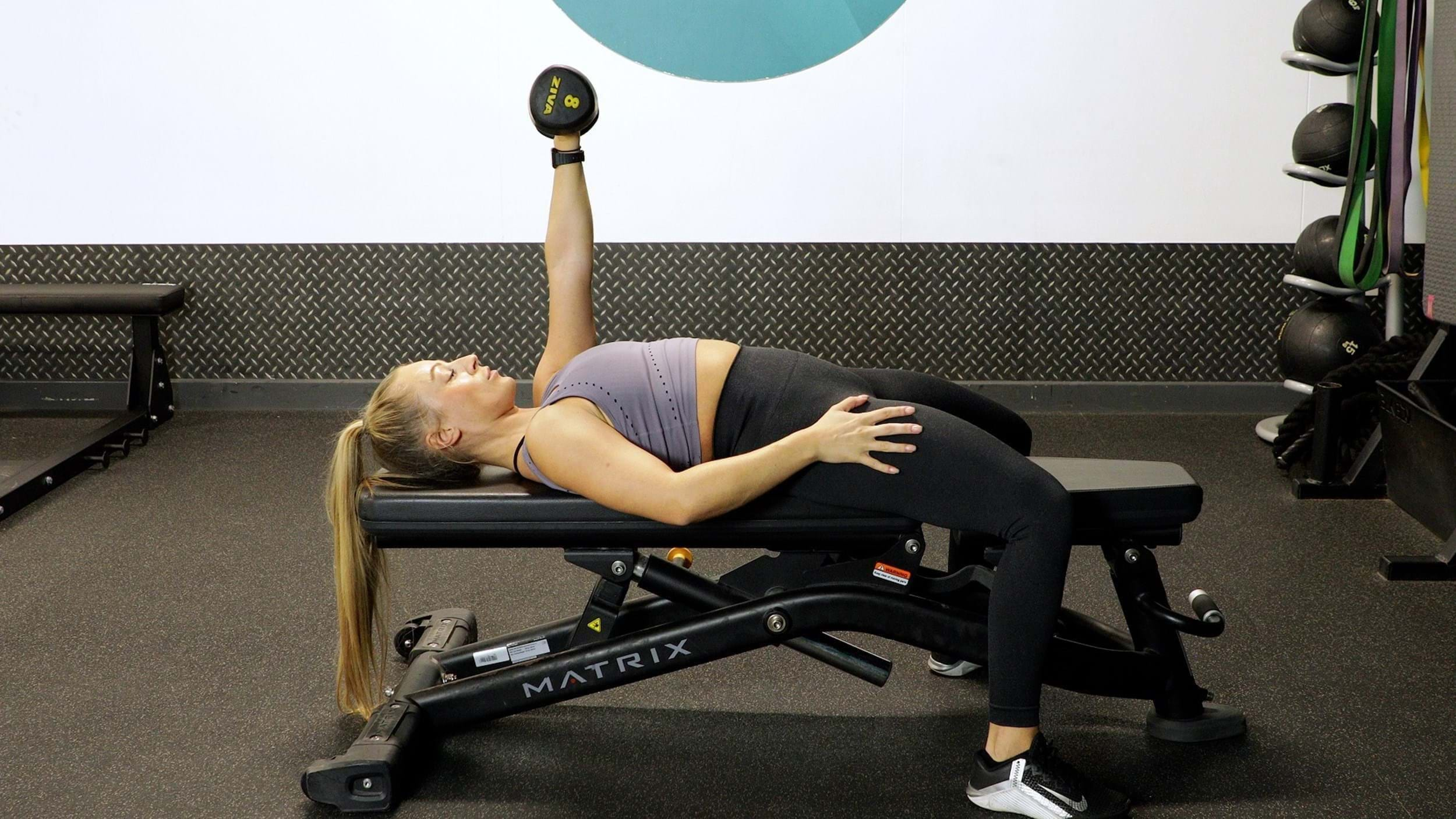
The single arm chest press is a unilateral variant which requires greater stability and core strength.
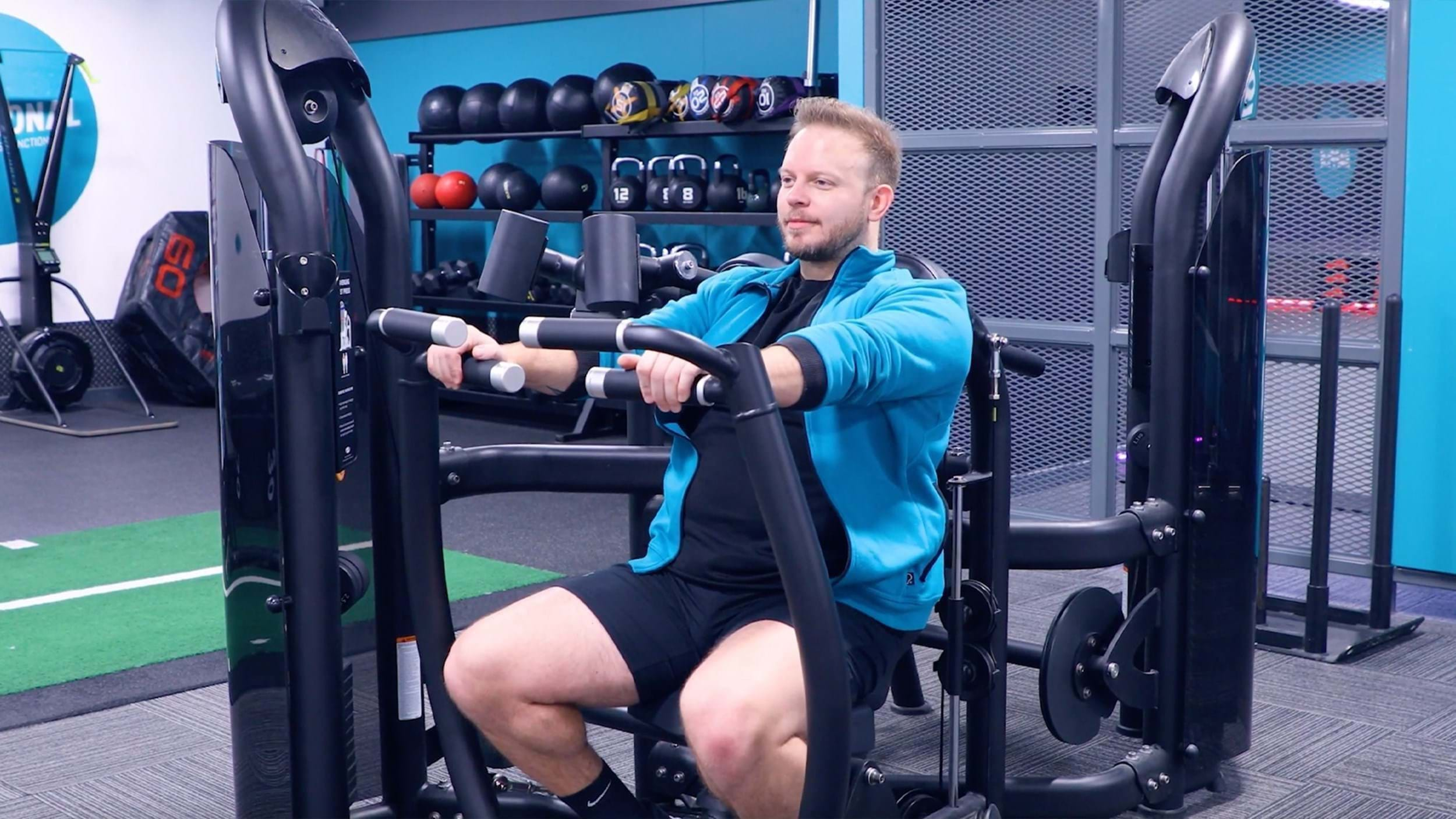
The seated chest press removes involvement from the core for more emphasis from the chest. It's also good for beginners to learn the movement.
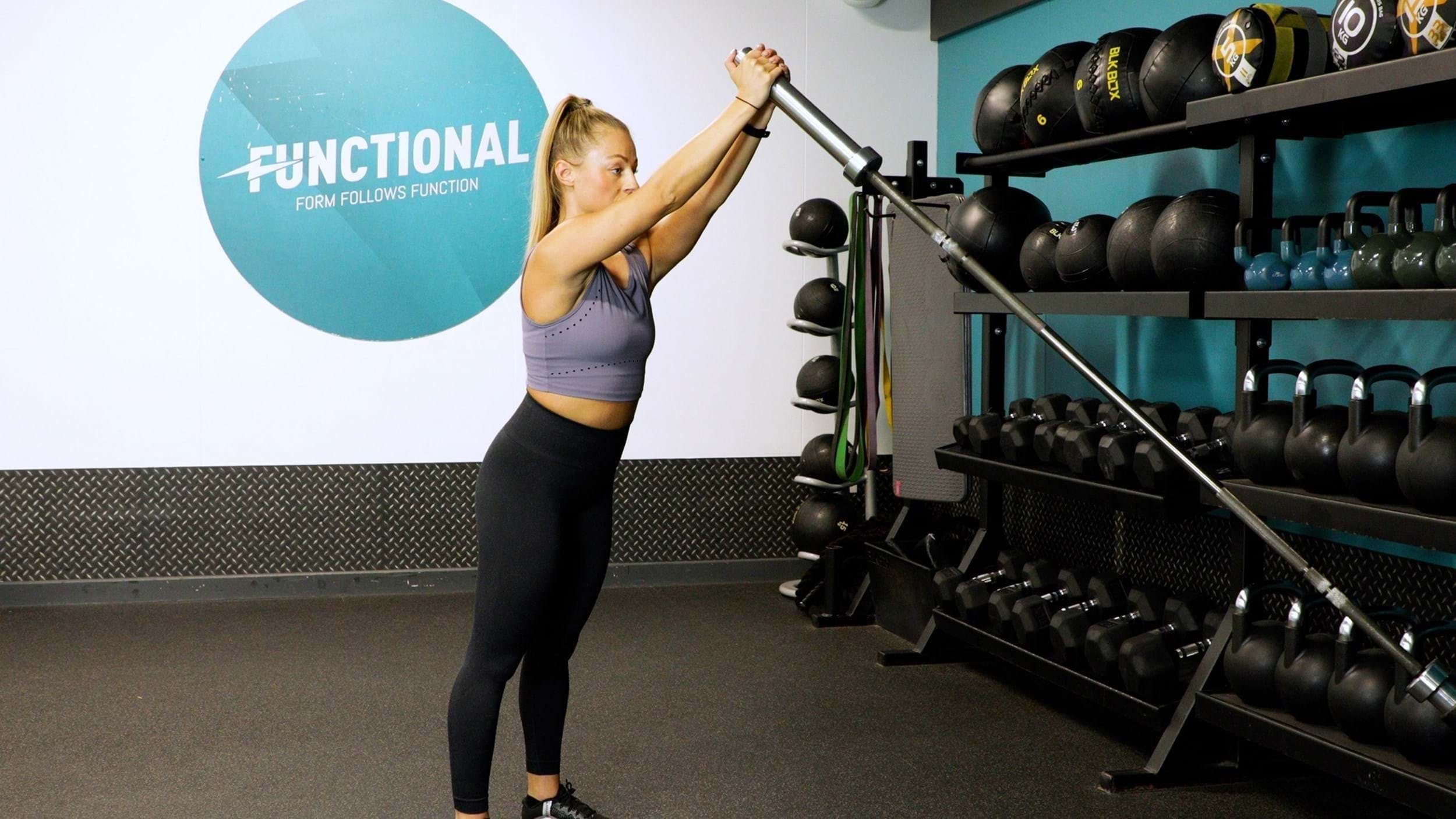
The landmine chest press offers more stability than other variations and can have a lower risk of injury.
If you’re not sure whether a work out is suitable for you, please consult your doctor before you start it. If you're unsure of how to perform any of the above exercises, please ask help from a PT at your gym.